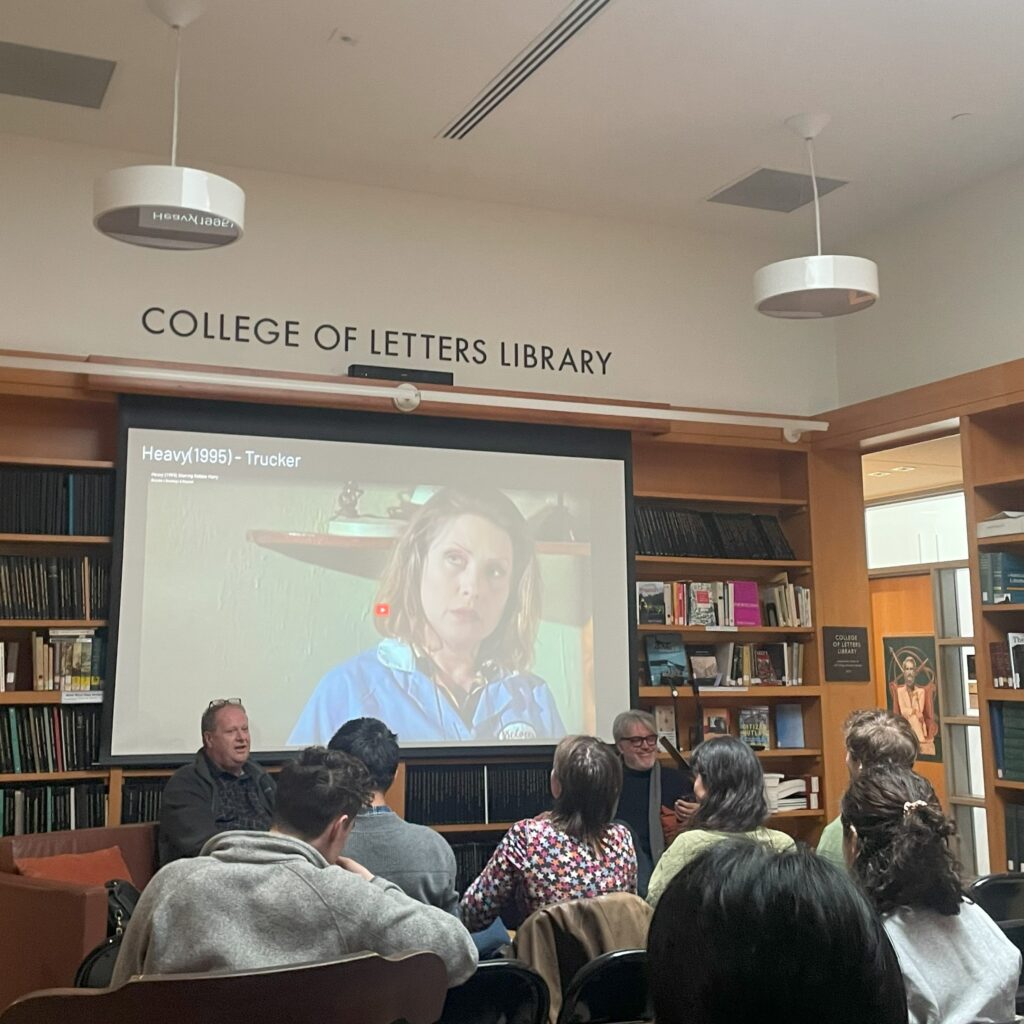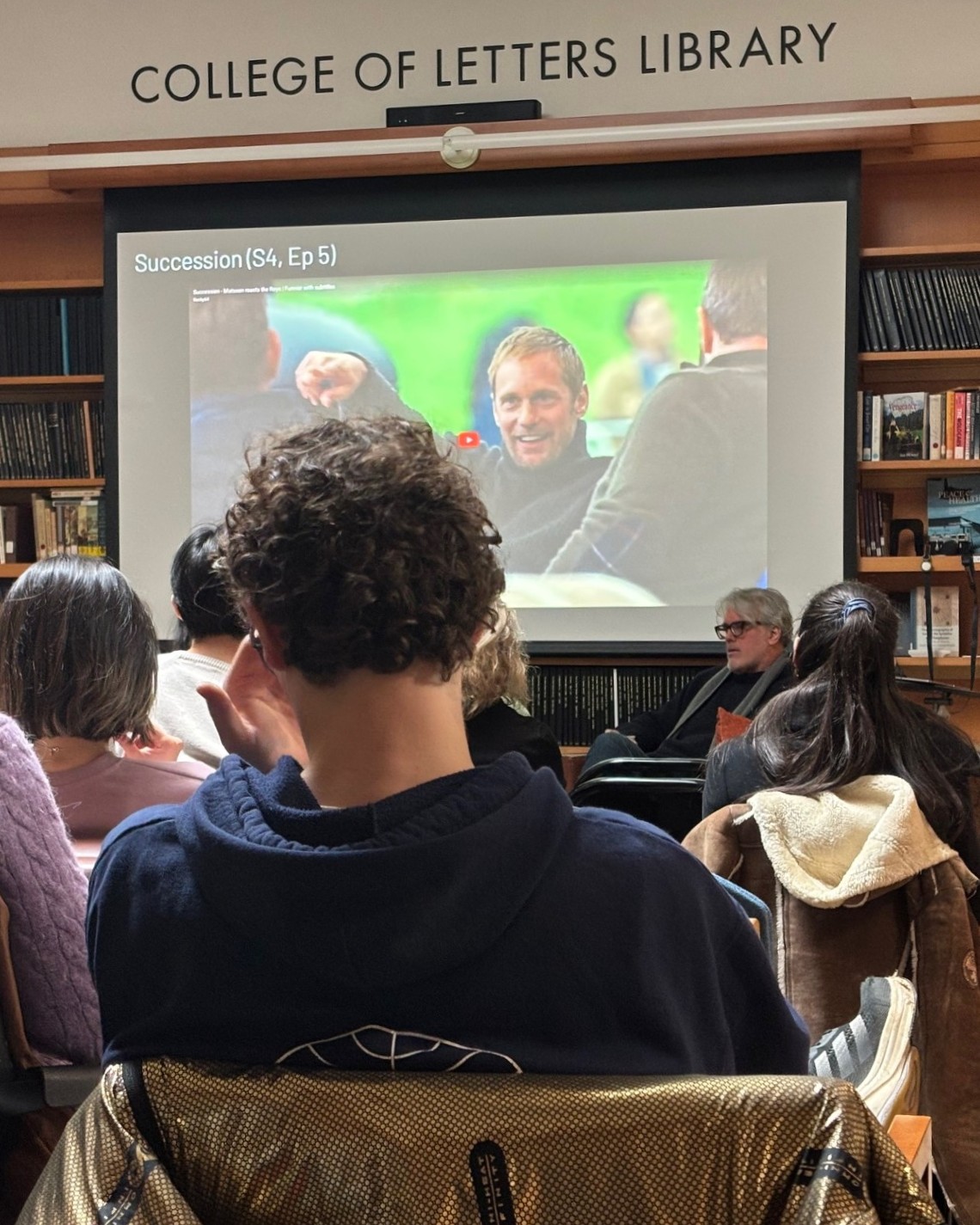On April 11, the College of Letters and the College of Film and the Moving Image co-sponsored a Masterclass with 5-time Emmy winner, television and film producer Scott Ferguson. Ferguson has been the executive producer of shows and films including, but not limited to: Succession (2019-2023), The Night Of (2016), Heavy (1995), and Brokeback Mountain (2005). The event was held in the COL Library, with nearly 30 attendees crowding the seating area. From the hand-raises Ferguson prompted at the beginning of the talk, nearly half attendees were COL majors, with the other half being Film studies majors. Professor of the Practice in Letters Charles Barber and Ferguson sat in armchairs towards the front of the library, with a projector screen behind them, which would screen scenes from Heavy and Succession.
“Well, first, I’m a huge believer in a university education, and I have two degrees from different schools, and both changed my life in a very good way.”
At Columbia University’s Film MFA program, Ferguson said he met remarkable people like James Mangold, Lisa Cholodenko, whom he had the chance to work with later.
Ferguson grew up in Pittsburgh, PA, where finding an “in” to the film business was difficult, and he had no family or industry connections as such. After his undergraduate years at Cornell University, he moved back to Pittsburgh and worked at a department store.
“And then I finally said, I have to do what I can to get as close as I can.”
Among other projects like making silent films, Ferguson officially entered the film industry at a television station in Pittsburgh, where he worked his way up.
“I grew up in Pittsburgh, where there was no such thing as a film business. But you know, for me, going to school kind of changed [my] worldview and my ambition to try something, that I never would have conceived of, had I not gone there.”
Among the many questions students asked, one was on the value of attending film school beyond making connections.
“I did spend, like, a handful of years [working] between undergrad and grad, and I made the observation [in] Cornell [as an undergraduate myself], which had a MFA actor program, and the young actors who had just finished undergrad went straight into grad school, versus the ones who spent a handful of years outside– I was much more impressed with people who had some real life experience.” Fergusson responded.
“You may or may not need it,” he said. “A couple of the most accomplished people I’ve worked with in the industry never went to college, David Mamet and Scott Rudin, and they didn’t need college to make it at the highest level.”
Ferguson spoke about a niche topic he discovered in college, while taking a Roman History class for major requirements. It turned into a lifelong fascination, which also helped him connect with people in the industry.
“When it was time to meet on Succession, I had lunch with Jesse Armstrong. And he and I were talking, but we barely talked about the show. I saw the pilot and read the pilot draft. They had shot a season before me. We ended up talking about Julio-Claudian emperors almost the whole time. And that stuff is useful. It’ll come in handy, all that weird knowledge.”
In the late 50s, and 60s, Ferguson said, there was the emergence of the auteur theory, which lionized the role of the director as the chief author of a given production. Now, he feels, the emphasis is on writers and showrunners. At the same time, Ferguson related, that doesn’t mean that people in the industry configure all creative decisions unilaterally. He emphasized still, the value of collaborative thinking and pitching, even if decision making in these kinds of industries is centralized.
“And so being [collaborative process] where you know you’re feeding off of each other is kind of what I’m talking about. There’s this alchemy that what we achieve is bigger than the sum of its parts; but also, the sum of its parts is kind of this fun life that I’ve enjoyed.”
Written by Janhavi Munde, COL Class of 2027




